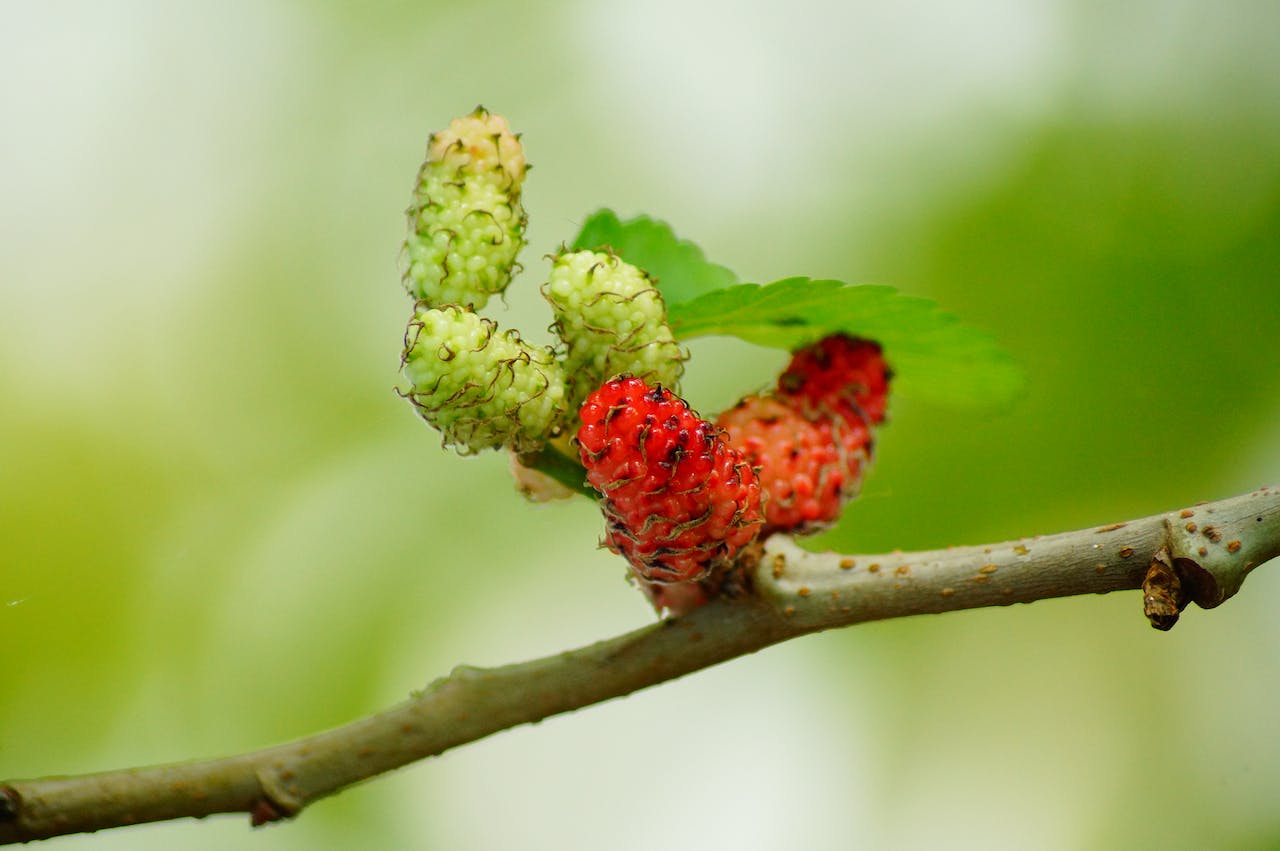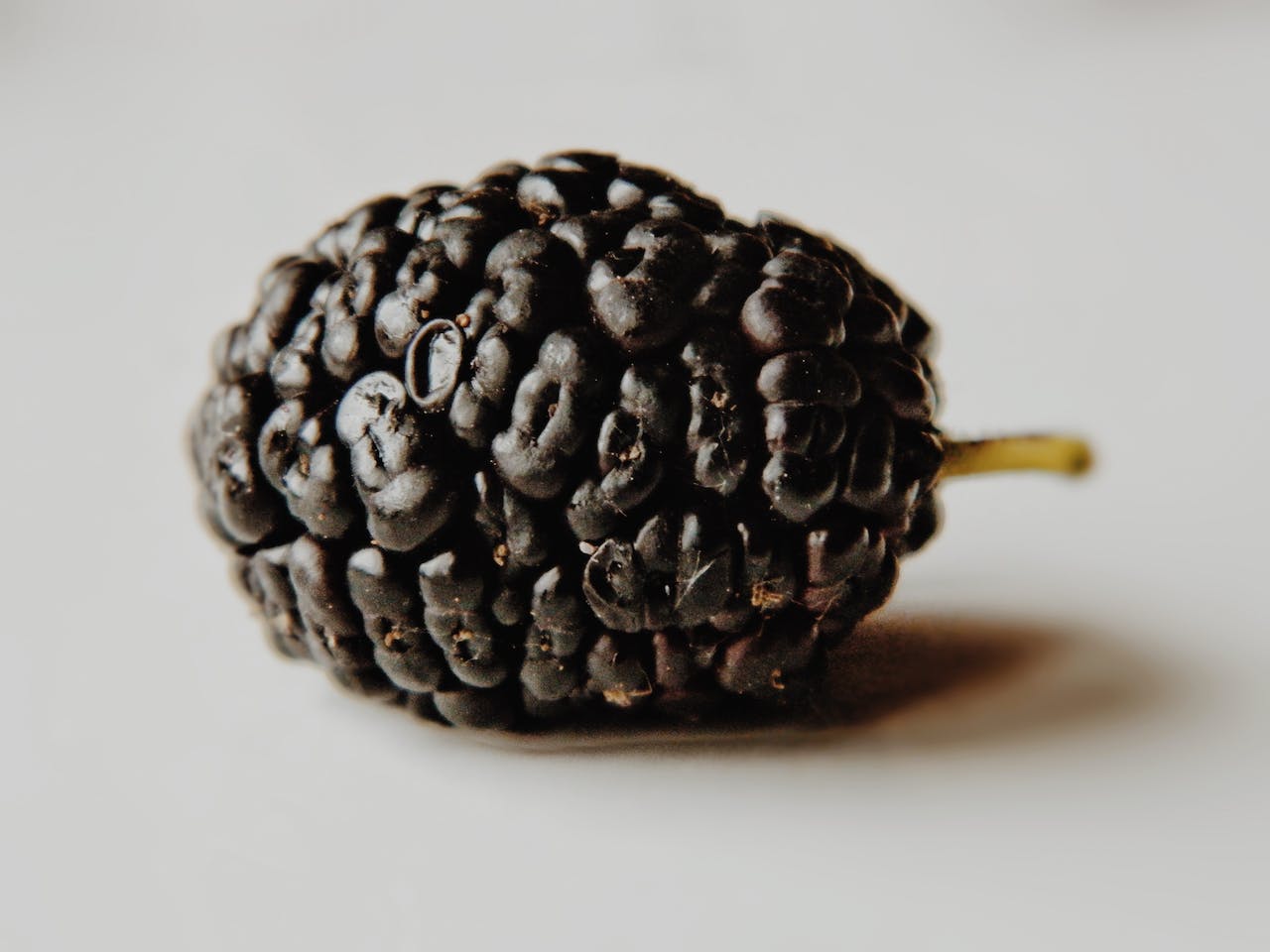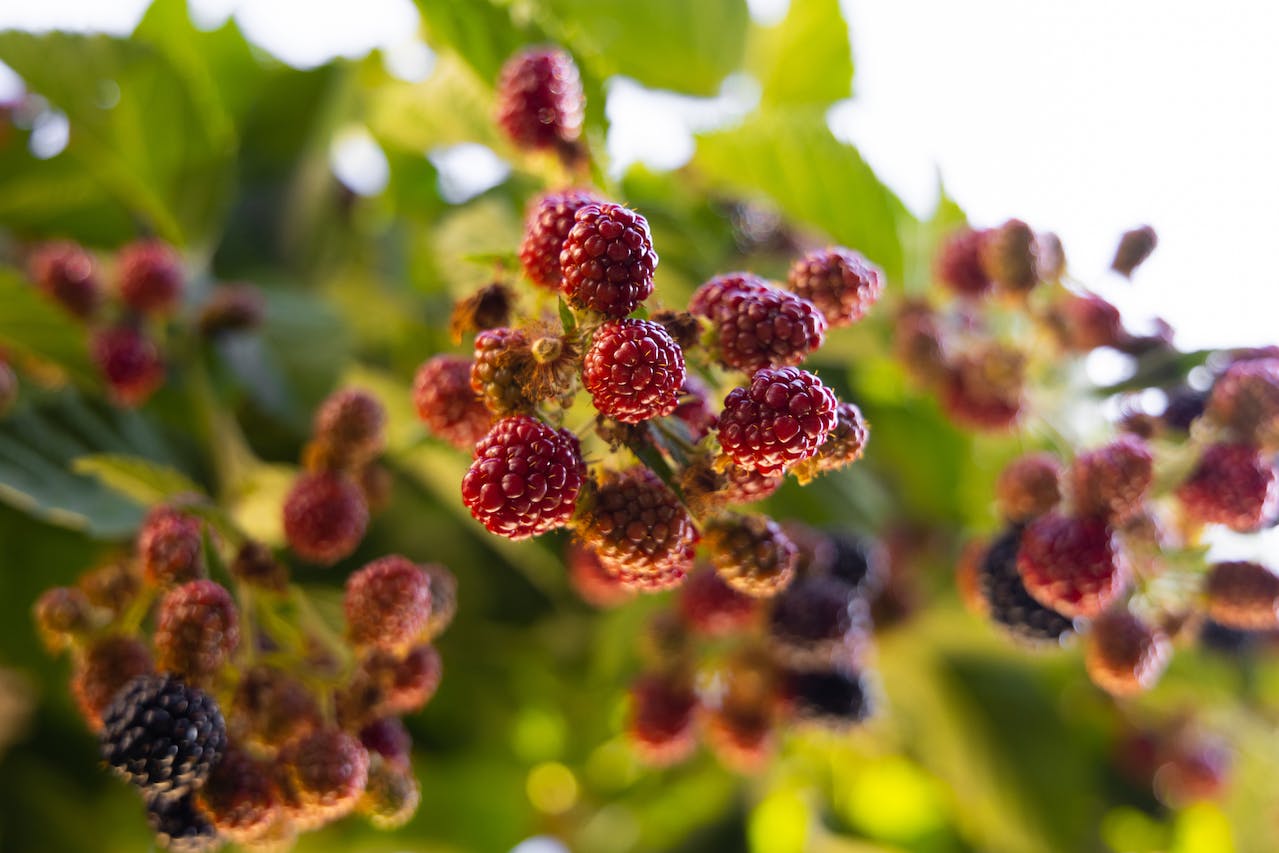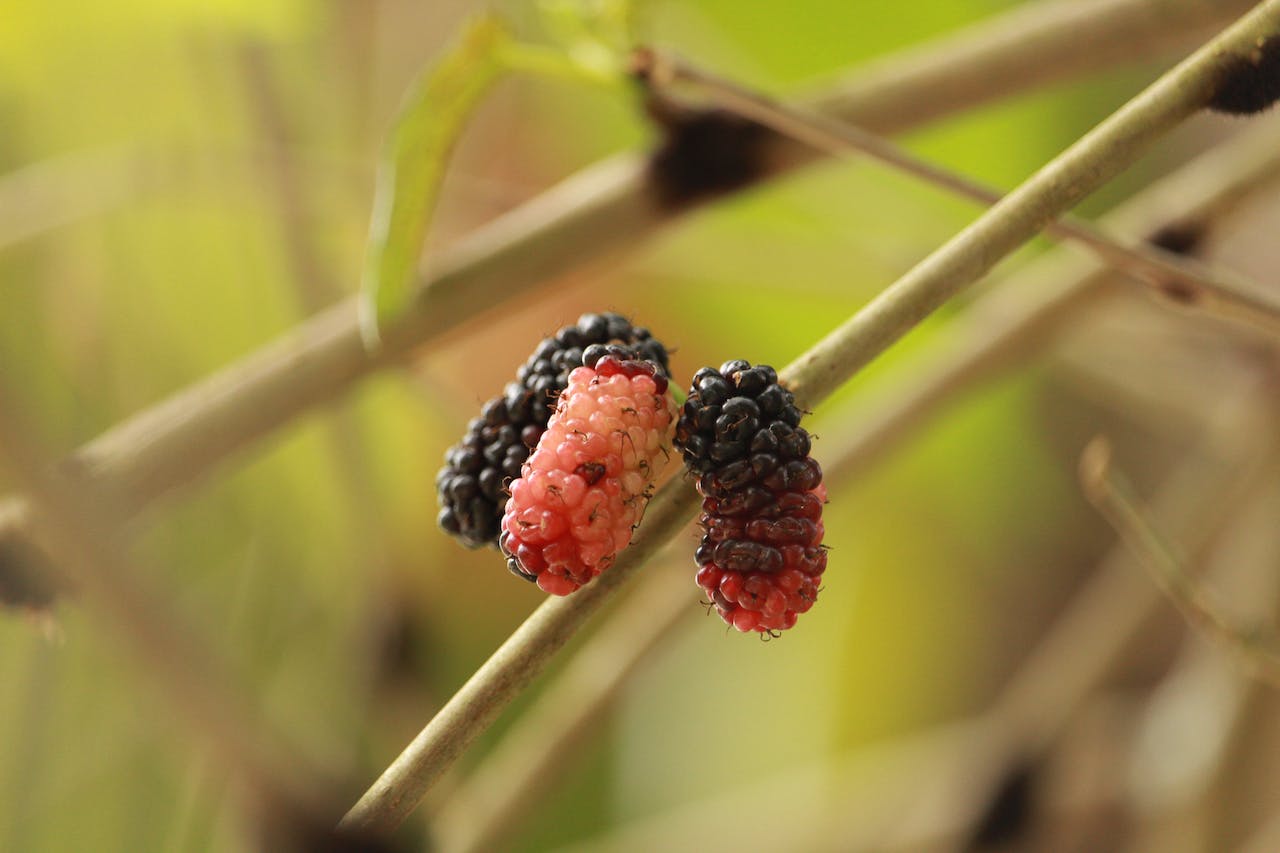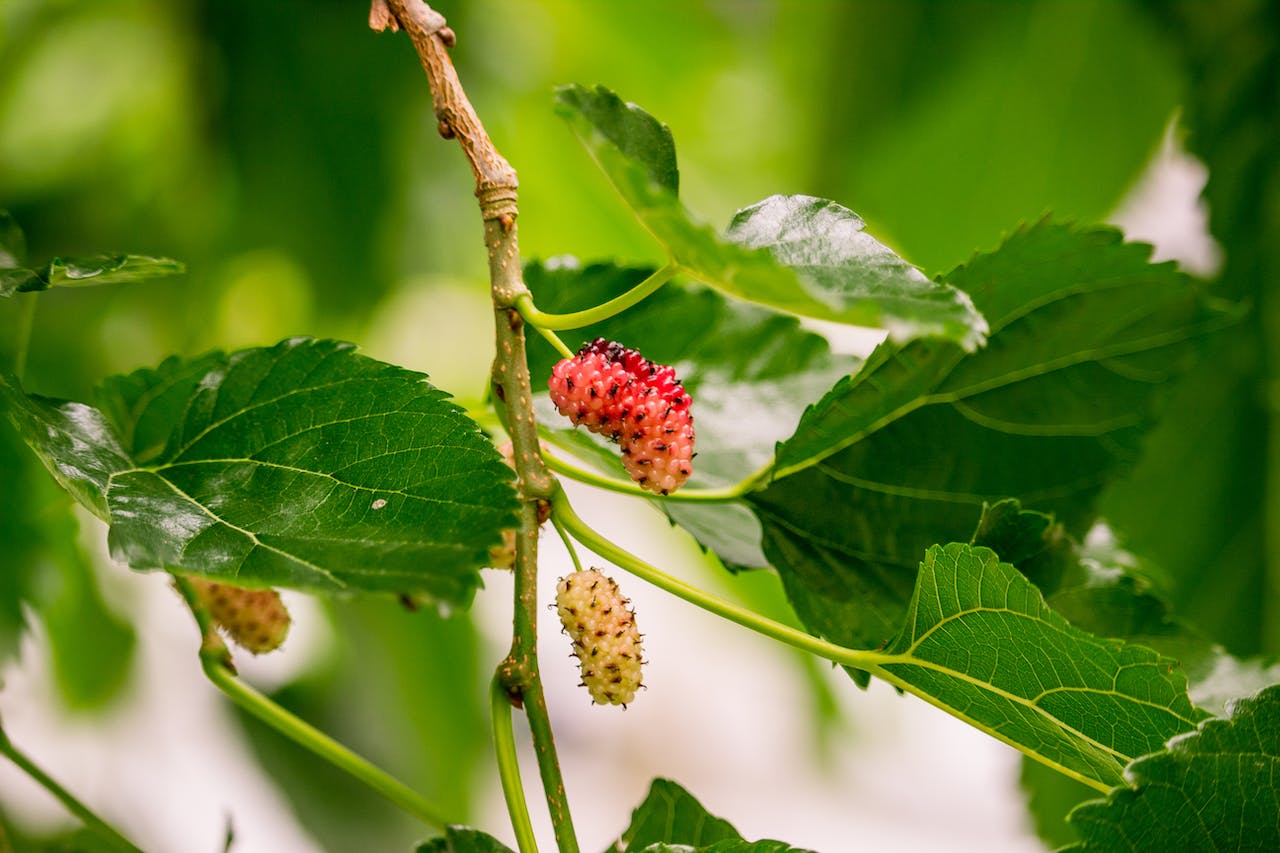What Is Mulberry Tincture It's Uses, Prosperities And Health Benefits
Mulberry tincture is a herbal extract made from the leaves, bark, or fruit of the mulberry tree (genus Morus). This tincture is created by steeping mulberry plant parts in alcohol or another solvent to extract its beneficial compounds.
Author:Suleman ShahReviewer:Han JuDec 27, 20235.8K Shares366.2K Views
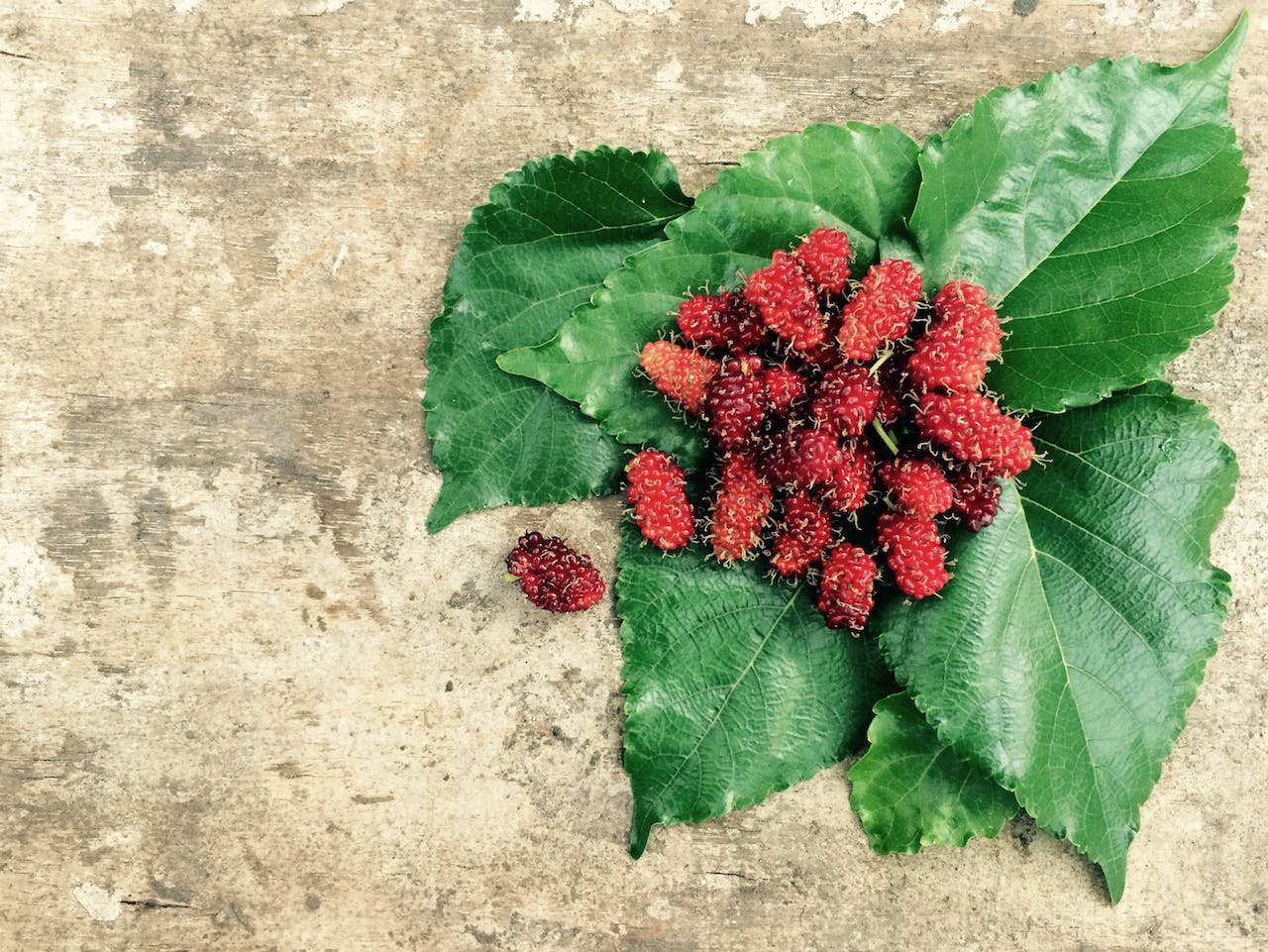
The tasty berries that are produced by mulberry trees are consumed all over the globe and are sometimes referred to as "superfoods" owing to the high levels of vitamins, minerals, and potent plant chemicals that they contain.
Nevertheless, the fruit isn't the only component of the mulberry tree that has the potential to be beneficial to one's health. The leaves of this plant have a long historyof usage in traditional medicine, where they have been used as a natural remedy for a wide range of ailments.
The mulberry tinctureis, in fact, an excellent source of many nutrients. They are packed with potent plant chemicals such as polyphenol antioxidants, in addition to vitamin C, zinc, calcium, iron, potassium, phosphorus, and magnesium.
This article takes a comprehensive look at mulberry tincture, analyzing its applications, advantages, and the risks that may be associated with using it.
Nutrition Facts About Mulberry
Mulberries are linked to figs and breadfruit. They are the fruits of mulberry trees (Morus sp.). Since leaves are the sole food that silkworms consume, the trees are historically farmed for their leaves, mainly in Asia and North America.
They contain vibrant berries, often black, white, or red, which are dried and may be eaten as a snack. They are also frequently used to make wine, fruit juice, tea, jam, or canned meals.
Mulberries are becoming more and more popular around the globe because of their delicious taste, high nutritional content, and several health advantages. Mulberries are low in calories and rich in water content, giving them a powerful nutritional punch.
Just 60 calories and 88% water make up a cup of fresh mulberries, which weigh 140 grams. They provide 1.7% fiber, 1.4% protein, 0.4% fat, and 9.8% carbs as macronutrients.
Similar to raisins, dried mulberries have a distinct nutritional makeup. They have a higher protein level than many other dried berries, with 70% carbohydrates, 14% fiber, 12% protein, and 3% fat.
A 3.5-ounce (100-gram) portion of fresh mulberries has 43 calories, 88% water, 1.4 grams of protein, 9.8 grams of carbs, 8.1 grams of sugar, 1.7 grams of fiber, and 0.4 grams of fat, according to our analysis of the nutrient breakdown. In addition to being delicious, mulberries are a healthy snack that provides a mix of vital elements for anybody looking to add something more healthful to their diet.
What Is Mulberry Tincture?
A concentrated herbal extract made from the therapeutic qualities of the mulberry plant, technically known as Morus, is called mulberry tincture. This is an herbal cure made by steeping fresh or dried mulberries in high-proof brandy and letting the plant's healing properties seep out over many weeks.
The end product is a strong beverage that is high in antioxidants, vitamins, and minerals and contains the concentrated essence of mulberries. Mulberry tincture is well known for its adaptability and may be utilized for a number of health issues.
The tincture encapsulates the essence of mulberries, which have historically been appreciated for their possible health advantages and high nutritional content. This includes immune system support, possible help with blood sugar regulation, and antioxidant qualities that fight free radicals.
Mulberry tincture is usually taken in tiny amounts and is readily integrated into everyday activities. Its versatile use lets people customize their intake to suit their tastes, whether it's taken under the tongue or added to drinks like smoothies or water. To fully enjoy the natural benefits of mulberry tincture, like with any herbal cure, it is best to be aware of its possible uses, speak with medical specialists, and take it sparingly.
Properties Of Mulberry Tincture
The fruits of this tree have their own set of unique characteristics, which contribute in equal measure to the tincture made from mulberries and its remarkable curative effects. The vitamins B1 through B6, A, B9, C, K, and E are all found in the berries of this plant.
Additionally, it is a veritable treasure trove of trace elements, including iron, manganese, copper, zinc, and selenium, to name a few. In addition to this, it contains a significant quantity of macronutrients, which include sodium, potassium, calcium, phosphorus, and magnesium.
Because the mulberry berry has such a complicated structure, it contains even more medicinal compounds than are necessary. As a result, the tincture made from it will not be any less effective and will not taste any less good.
How Are Mulberry Leaves Used?
China has records of mulberry farming dating back three millennia. The ancient Chinese employed mulberry trees for food, paper, medicine, and silkworm breeding. The plant family Moraceae is home to mulberry leaves (Morus), which come in a variety of varieties, including black mulberry (M. nigra), red mulberry (M. rubra), and white mulberry (M. alba).
The mulberry tree originated in China and is now cultivated around the world, especially in the US, Europe, Asia, and Africa. Mulberry leaves have a wide range of uses in industry, medicine, and cooking.
Latex, a milky white secretion found in the plant's leaves and other components, is somewhat poisonous to humans and may irritate skin when touched or upset the stomach if consumed.
On the other hand, mulberry leaves are consumed by many individuals without any negative consequences. Reportedly, they have an excellent flavor and are often used to create tinctures and herbal teas, which are well-liked as health drinks in Asian nations. Once boiled, the young leaves may be consumed.
Mulberry leaves, which are gaining popularity because of their possible health advantages, may also be included. Furthermore, these leaves are the only food supply for the silkworm, a kind of caterpillar that makes silk, and they are sometimes fed to dairy cows.
How To Make Mulberry Tincture
Mulberry tincture, a potent herbal medicine that is simple to make at home, utilizes the health benefits of this nutrient-rich fruit. You can secure the best quality for your health journey by controlling the components when you make your mulberry tincture.
Ingredients Required
To start this herbal project, collect the following supplies:
- Rounded Mulberries - Choose ripe, fresh mulberries to get the most potency out of the tincture.
- Superior Grade Alcohol - Select grain alcohol or vodka that has high proof. By acting as a solvent, the alcohol helps to extract the healthy ingredients from the mulberries.
- Glass Jar Covered- Throughout the infusion process, make sure the jar is clean and has a tight-sealing cover to avoid infection.
Step-By-Step Guide On The Preparation Process
- Pick fresh mulberries to start. Thoroughly rinse them with cold water to get rid of any debris or contaminants.
- Wash the glass jar and lid in hot, soapy water to sterilize them. Before using, let them air dry thoroughly.
- Fresh mulberries should be added to the glass jar, allowing room at the top. Once the mulberries are entirely covered, pour the alcohol over them.
- For four to six weeks, keep the jar well sealed in a cold, dark area. The alcohol will extract the medicinal components in the mulberries during this maceration time.
- Every few days, give the jar a little shake to help with the extraction process. This helps guarantee that the mulberries' health benefits are fully incorporated into the tincture.
- Use cheesecloth or a fine-mesh filter to pour the tincture into a clean, dark glass container after the maceration time. To get all the benefits from the mulberries, squeeze off any leftover juice.
How To Use Mulberry Tincture
Including mulberry tincture in your routine is an easy and adaptable approach to the advantages of its health benefits. One popular technique is to make a cool drink with mulberries by diluting a few drops of the tincture with water.
This improves the taste and gives you an easy method to take the tincture on a daily basis. Mulberry tincture may be a delicious and healthy addition to smoothies or fruit juices for those who have a sweet craving. This helps to balance the tincture's strong flavor.
Mulberry tincture is not only for drinks; it may be a natural treatment for some medical conditions. A few drops under the tongue may provide rapid and direct bloodstream absorption, which makes it a valuable treatment for conditions like stress or digestive problems.
Moreover, adding mulberry tincture to recipes, such as marinades or salad dressings, not only adds a distinctive taste to your food but also exposes you to its possible health advantages. Whether you like your mulberry tincture straight up, in a recipe, or a drink, experimenting with different applications makes for a personalized and pleasurable method to benefit from its inherent health.
Is White Mulberry Tincture Poisonous?
When taken in moderation, tincture made from white mulberry fruit, which comes from the Morus alba tree, is widely recognized as being safe for human consumption. However, vigilance is needed, particularly in the case of those who are sensitive to mulberries or other vegetation linked to them.
Although a large number of people ingest the fruit itself, it is essential to be aware that other components of the white mulberry plant, such as the sap and the unripe fruit, contain substances that have the potential to provoke unfavorable responses in some people.
In the context of the production of tincture, minimizing the potential for toxicity by utilizing ripe fruit and adhering to correct extraction procedures may significantly cut down on exposure. When making a tincture, it is essential to choose materials of good quality and to follow the dose instructions provided by the manufacturer.
White mulberry tincture should be used in moderation, just like any other herbal medicine, and persons who have pre-existing medical issues or who are already taking pharmaceuticals should speak with a qualified medical expert prior to introducing white mulberry tincture into their regimen.
The white mulberry tincture has been shown to have a number of positive impacts on one's health; nevertheless, in order to prevent any possible adverse side effects, it is essential to use the product responsibly and be conscious of one's unique sensitivities.
Health Benefits Of Mulberry Tincture
The powerful mulberry fruit is used to make mulberry tincture, which is highly valued for its many health advantages. This herbal treatment provides an all-natural and comprehensive approach to well-being, with its antioxidant characteristics and possible therapeutic uses. Now, let's explore the many possible health benefits of mulberry tincture.
Potential Uses Of Mulberry For RBCs
Iron is scarce in fruits, yet mulberries are rich in it. The body's ability to produce red blood cells may be enhanced by iron. This might facilitate better oxygen delivery to the body's tissues and organ systems. This might suggest that mulberries increase metabolism and promote optimal performance of the body's systems.
Antioxidant Powerhouse
Antioxidants are abundant in mulberries, and they become concentrated when made into a tincture. Antioxidants are essential for combating free radicals, which are known to cause aging and a number of chronic illnesses. Regular use of mulberry tincture may aid in the prevention of oxidative stress, hence enhancing lifespan and general health.
Immune System Support
Mulberry tincture is an excellent ally in helping the body's defensive processes because of its immune-boosting qualities. Iron, vitamin K, and vitamin C are among the vitamins and minerals found in mulberries that support a robust immune system.
You may get additional immune support by using mulberry tincture in your regimen as a preventative strategy or during flu season.
Blood Sugar Regulation
There is potential for a mulberry tincture to help with blood sugar management. Mulberries are a possible supplement for those managing diabetesor at risk of developing insulin resistance since research shows that substances in them may help manage blood glucose levels.
However, before adding mulberry tincture to a diabetic treatment regimen, it is imperative to speak with a healthcare provider.
Cardiovascular Health
Mulberry tincture's capacity to lower cholesterol is the source of its heart-healthy properties. According to studies, mulberries contain certain chemicals that may help raise HDL (good) cholesterol and decrease LDL (bad) cholesterol.
Because cardiovascular healthdepends on maintaining a good cholesterol profile, a mulberry tincture may be used in addition to heart-healthy practices.
Anti-Inflammatory Properties
While inflammationis a normal reaction to damage or illness, prolonged inflammation has been linked to a number of health problems. The anti-inflammatory qualities of mulberry tincture may assist in reducing inflammation inside the body. This may be especially helpful for illnesses like arthritis or inflammatory bowel disorders that are impacted by inflammation.
Weight Management
The mulberry tincture may help in attempts to control weight. According to some research, mulberry chemicals may help regulate weight by preventing the absorption of sugar.
Furthermore, the antioxidant component of the tincture could promote general metabolic health. Mulberry tincture may help achieve weight control objectives when combined with a balanced lifestyle, while it is not a stand-alone remedy.
Skin Health And Anti-Aging
Its antioxidant-rich nature further enhances the advantages of mulberry tincture to skin health. Antioxidants aid in the fight against free radicals, which cause aging of the skin. Frequent use of mulberry tincture may improve general skin health and give the complexion a more youthful appearance.
Cognitive Function
Mulberries may have neuroprotective properties, improving cognitive function and lowering the risk of neurodegenerative disorders, according to preliminary studies. The possible cognitive advantages of mulberry tincture make it an exciting alternative for brain health, while additional study is necessary.
Mulberry tincture is a multipurpose herbal medicine that may provide many health advantages. Mulberry tincture may provide a natural and comprehensive approach to maintaining your health, whether you're looking for antioxidant support, immune system strengthening, or help manage specific health concerns.
As with any herbal supplement, it's best to speak with a medical expert to be sure it will work with your specific requirements and any current treatment plans.
Prevention Of Side Effects From Mulberry Tincture
While tests on humans and animals have generally shown that mulberry tincture is safe, some individuals may have adverse effects from it.
For instance, while taking supplements containing the active component from mulberry leaves, some individuals have suffered adverse effects such as diarrhea, nausea, dizziness, bloating, and constipation. Additionally, since mulberry leaves influence blood sugar, persons using diabetic drugs should speak with a doctor before consuming them.
In addition, further human research is required to confirm this leaf's safety for long-term usage. Because there haven't been enough safety studies done, women who are pregnant or nursing should avoid using it with children.
Before using any herbal supplements, it is advised that we speak with our physicians, mainly if we are on any other medications or have any health issues. How wholesome.
Mulberry leaves are linked to many remarkable health advantages and have been used in traditional medicine for a very long time. This unusual leaf may lower many heart disease and diabetes risk factors and combat inflammation.
To validate these benefits of mulberry leaves and mulberry tincture, more human investigations are necessary. We may consume the cooked young leaves or take them as a supplement. But before including mulberry leaves in your diet, you should speak with your doctor about any possible adverse effects.
Mulberry Tincture - FAQs
For What Purpose Is Mulberry Tincture Used?
Because mulberry leaf extract reduces inflammation, blood pressure, cholesterol, and atherosclerosis, it can enhance heart health.
Who Shouldn't Eat Tinctured Mulberries?
Individuals with fig allergies may also have mulberry tincture allergies.
Is Mulberry Warm Or Cool?
Because mulberry fruit is cold, it may benefit those whose bodies are overheated.
Conclusion
Mulberry tincture is a complete drink that has all of the health advantages of this fantastic fruit. Because of mulberry tincture's adaptability and possible immune system support, it may be easily included in regular health regimens. It also has strong antioxidant properties.
Whether it is consumed as a cool beverage, mixed into smoothies, or used in food recipes, this herbal medicine is a fun and healthy way to improve general health. Let the mulberry tincture's nourishing essence lead us on a road of well-being as we explore its possibilities and combine nature's knowledge with our quest for a more vibrant and healthy existence.
Jump to
Nutrition Facts About Mulberry
What Is Mulberry Tincture?
Properties Of Mulberry Tincture
How Are Mulberry Leaves Used?
How To Make Mulberry Tincture
How To Use Mulberry Tincture
Is White Mulberry Tincture Poisonous?
Health Benefits Of Mulberry Tincture
Prevention Of Side Effects From Mulberry Tincture
Mulberry Tincture - FAQs
Conclusion

Suleman Shah
Author
Suleman Shah is a researcher and freelance writer. As a researcher, he has worked with MNS University of Agriculture, Multan (Pakistan) and Texas A & M University (USA). He regularly writes science articles and blogs for science news website immersse.com and open access publishers OA Publishing London and Scientific Times. He loves to keep himself updated on scientific developments and convert these developments into everyday language to update the readers about the developments in the scientific era. His primary research focus is Plant sciences, and he contributed to this field by publishing his research in scientific journals and presenting his work at many Conferences.
Shah graduated from the University of Agriculture Faisalabad (Pakistan) and started his professional carrier with Jaffer Agro Services and later with the Agriculture Department of the Government of Pakistan. His research interest compelled and attracted him to proceed with his carrier in Plant sciences research. So, he started his Ph.D. in Soil Science at MNS University of Agriculture Multan (Pakistan). Later, he started working as a visiting scholar with Texas A&M University (USA).
Shah’s experience with big Open Excess publishers like Springers, Frontiers, MDPI, etc., testified to his belief in Open Access as a barrier-removing mechanism between researchers and the readers of their research. Shah believes that Open Access is revolutionizing the publication process and benefitting research in all fields.

Han Ju
Reviewer
Hello! I'm Han Ju, the heart behind World Wide Journals. My life is a unique tapestry woven from the threads of news, spirituality, and science, enriched by melodies from my guitar. Raised amidst tales of the ancient and the arcane, I developed a keen eye for the stories that truly matter. Through my work, I seek to bridge the seen with the unseen, marrying the rigor of science with the depth of spirituality.
Each article at World Wide Journals is a piece of this ongoing quest, blending analysis with personal reflection. Whether exploring quantum frontiers or strumming chords under the stars, my aim is to inspire and provoke thought, inviting you into a world where every discovery is a note in the grand symphony of existence.
Welcome aboard this journey of insight and exploration, where curiosity leads and music guides.
Latest Articles
Popular Articles
